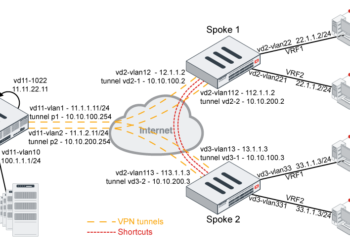
I. Introduction
A. You know that sci-fi movie where every gadget can connect to another? Well, we’re living it! Thanks to the Internet of Things (IoT), our cars are becoming more than just a fancy mode of transport. They’ve turned into smart gadgets, constantly chatting away with their makers, providing valuable doughnuts… Oops, sorry, I meant data, of course!
B. We wouldn’t be wrong to picture this like a parent-child catch-up, where the car happily narrates its day to its maker. It’s fascinating, but it’s also a whole new dimension of privacy and safety to navigate. Buckle up, we’re about to explore uncharted territories of vehicular communication.
C. Wondering what we’re going to cover in this enlightening journey? Well, from the basic principles of vehicle-to-manufacturer communication, security risks, to consumer rights, we’ve got it all! Let’s get this motor running!
II. Exploring Vehicle-to-Manufacturer Communication
A. Who knew cars could chat, right? Well, with advanced embedded sensors and the technology we fondly refer to as Vehicle to Manufacturer (V2M), our humble cars are constantly exchanging data with their manufacturers. Think of it like sending postcards from your journey, minus the snail mail part!
B. Our trusty sidekick, technology, is fueling this revolution. AI-powered driverless technology is at the forefront, relying on a treasure trove of data to learn and evolve. And with in-built sensors monitoring everything from engine heat to brake usage, the future has undeniably arrived—on four wheels!
C. The benefits of this conversation? Picture this: You’re driving to work, and suddenly your car alerts you that your brake pads need replacing. Sounds pretty handy, right? For manufacturers, the data can help optimize design, perform preventive maintenance or even promptly react to potential safety issues.
III. Privacy Concerns: Is Our Information Safe?
A. Imagine having a nosy neighbor who knows a little too much about your life. Now imagine your car playing that role, but instead of gossiping about your life to the neighbor down the lane, it’s spilling your beans to its manufacturer! Your car collecting and sending personal information like your travel routes, habits, and even music taste could potentially raise a red flag.
B. Wondering how manufacturers use this data? Some might just use it for maintenance and safety updates. But others might be inclined to monetize the data, drawing criticism and privacy concerns.
C. As Peter Parker’s Uncle would say, ‘With great power comes great responsibility’. There needs to be some legal groundwork to ensure that our car doesn’t become a tattletale!
IV. The Security of Vehicle-to-Manufacturer Communication
A. On one hand, data breaches and hacking attempts pose a significant risk to the safety of vehicle-to-manufacturer communication. The odds of your car being remotely controlled by hackers might sound like a plotline from the next Fast & Furious sequel, but it’s a genuine concern in this connected era.
B. Fortunately, it’s not all gloom and doom. Autonomous carmakers are integrating robust safety measures, like encrypted communication and multi-layered authentication systems, to keep unwanted intruders at bay.
C. However, it’s clear that we can’t just rest on our laurels. In the battle against cyber threats, the auto industry is tirelessly innovating. Think stronger firewalls, tighter privacy settings – it’s like turning your car into a miniature fortress on wheels!
V. Consumer Rights & Transparency: What Are the Steps Forward?
A. Shouldn’t we have a say in what ‘postcards’ our car is sending out? Advocacy for transparent data collection is pushing car manufacturers to be open about their data collection practices.
B. As tech-savvy car owners, we must know our privacy rights. Agreeing to ‘Terms and Conditions’ shouldn’t mean allowing an unfettered exploitation of our car data!
C. The road to safety and privacy doesn’t end there. We need sturdy, concrete regulations in place that keep pace with the rapidly advancing field of connected vehicles.
VI. Summary and Conclusions
A. So there we have it, folks! Looks like it’s high time we got used to our car playing the chatty Cathy. While Vehicle-to-Manufacturer communication has remarkable benefits, like preventive maintenance and enhanced safety, we can’t overlook the privacy concerns.
B. Is hefty data collection the price we pay for owning a smart car, or is there a sweet middle-ground? As consumers, we need transparency from car manufacturers about data collection processes and our rights in these matters.
C. To tread safely into the future of connected cars, we must continue improving security measures, enhancing data usage transparency, and implementing suitable regulations that protect consumer rights.
VII. FAQs
A. What kind of data does my car send to the manufacturer?
It can range from performance metrics such as engine temperature and brake usage to personal data like your usual travel routes and stored entertainment preferences.
B. Is my data safe with car companies?
While most companies have robust security measures in place, the safety of data cannot be guaranteed 100%. It’s crucial for consumers to stay informed about the data practices of car manufacturers.
C. Can my data be used against me?
It mainly depends on the terms and conditions set by the car manufacturer. Usually, most manufacturers claim they use the data for enhancing performance, safety, and maintenance. However, legal regulations must be in place to prevent misuse.
D. How can I know what data is being collected by my vehicle?
Your vehicle’s data collection practices should be detailed in the manufacturer’s privacy policy. Transparency in data collection is a budding topic and car owners need to push for more information about the data collected.
E. What steps are being taken to ensure the security of my data?
Data security measures include encrypted data transmissions, multi-factor authentication for access control, and constant monitoring for breach attempts. Innovation in this field remains constant to ward off evolving threats.




